The roles and duties of a safety officer are paramount in today’s dynamic and safety-centric world. These professionals play a pivotal role in ensuring the safety and well-being of employees, as well as fostering a secure work environment. They are tasked with the enforcement of safety standards, pinpointing potential hazards, and cultivating an organization’s safety ethos. Their responsibilities are vast, ranging from undertaking risk evaluations and orchestrating emergency protocols to formulating safety guidelines and imparting training.
In this detailed blog post, we will unpack the 40 key responsibilities of a safety officer that everyone should be cognizant of. This list is invaluable whether you’re a safety expert aiming to broaden your horizons or an enterprise aiming to bolster workplace safety. Dive in with us as we highlight the multifaceted duties that position safety officers as the vital custodians of occupational safety.
Who Is a Safety Officer?
A safety officer is a professional who helps to ensure that an organization’s employees are safe and healthy. Safety officers may work in various industries, including healthcare, manufacturing, and construction. They typically develop and implement safety policies, conduct safety audits and investigations, and provide training on safety procedures.
The Occupational Safety and Health Administration (OSHA) estimates that workplace injuries and illnesses each year cost businesses billions of dollars in workers’ compensation costs. In addition, safety officers can help prevent job-related accidents and injuries, leading to decreased productivity, higher insurance premiums, and legal liabilities. A well-run safety program can also help improve employees’ morale, as they feel their employer is committed to their safety. In addition, a safe workplace is often seen as more productive.
The Duties of a Safety Officer vary depending on the company, organization, sector, etc. This article will list some of the major Duties of a Safety Officer you may come in contact with while working as a Safety Officer in any organization or when attending an interview for the position of a Safety Officer.
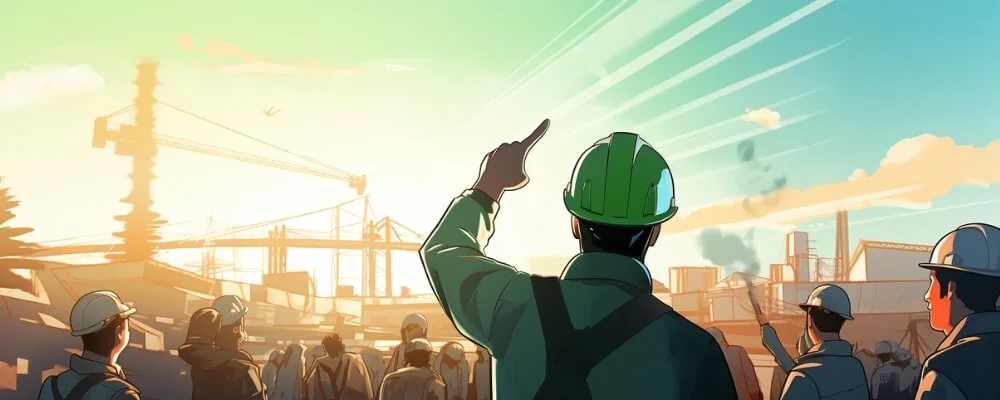
How To Become A Safety Officer?
There is no specific path to becoming a safety officer, but individuals can take some common steps to improve their chances of being hired for such a position. One of the most important things individuals can do is get a degree in occupational safety or a related field. Many safety officers also have certification from organizations such as the National Safety Council or the Occupational Safety and Health Administration.
Experience in a safety-related field is also helpful, and many safety officers have worked their way up from other positions within a company’s safety department. Strong communication and interpersonal skills are essential for success as a safety officer, as is the ability to think quickly and make decisions under pressure.
40 Duties of a Safety Officer | Roles & Responsibilities
A Safety Officer, also known as a Health and Safety Officer, ensures that an organization complies with health and safety regulations and promotes a safe working environment for employees. The specific duties of a Safety Officer may vary depending on the industry and organization, but here are some common responsibilities:

1. Hazard Identification and Risk Mitigation
A Safety Officer is pivotal in maintaining a safe and secure working environment. Their chief responsibility involves monitoring and evaluating potentially dangerous and unsafe conditions in the workplace.
They use their expertise to identify situations and provide valuable recommendations to the management team. This advice aims to eliminate these hazards altogether or, where this is not possible, reduce their potential impacts to the lowest possible level.
2. Workforce Protection and Safe Equipment Operation
As Safety Officers, their paramount duty lies in safeguarding the well-being of employees in their work environment. This role entails implementing preventive strategies to shield workers from harm or injuries.
It also includes enforcing the safe operation of all workplace machinery and equipment. They do this by establishing comprehensive guidelines, ensuring all equipment is used correctly, and reinforcing adherence to safety protocols.
3. Rectifying Unsafe Practices And Conditions
Within their role, a Safety Officer is responsible for correcting any unsafe actions or hazardous conditions present within the work environment. This task is typically accomplished via the usual lines of authority, and it often includes various actions like issuing formal warnings, initiating investigations, and implementing disciplinary actions where required.
By doing so, the Safety Officer ensures that safety protocols are not just guidelines but firm rules that are respected and adhered to by all employees.
4. Emergency Response and Prevention of New Hazards
A significant responsibility of a Safety Officer is to take immediate and necessary action to halt any unsafe practices as they occur, particularly in emergency scenarios where there’s a direct threat of injury to individuals or property damage.
It’s crucial that while executing this duty, the Safety Officer also exercises due diligence to ensure their actions do not inadvertently create new dangers or exacerbate existing ones. This role involves a delicate balance of swift intervention to prevent harm while maintaining a safe environment.
5. Emergency Situation Awareness, Coordination, and Command
One of the key responsibilities of a Safety Officer involves staying informed about ongoing and emerging situations within the workplace. Their role includes assuring the safety of all personnel and coordinating emergency response activities whenever necessary.
In an emergency, the Safety Officer takes on a leadership role, assuming control of the situation and guiding all actions according to pre-established procedures. This ensures a well-organized response, minimizing panic and maximizing safety during critical incidents.
6. Safety Communication & Awareness Facilitation
A Safety Officer is critical to communicating safety-related messages clearly to the Incident Command team. This responsibility involves ensuring that every team member is fully aware of any potential hazards that may arise and has a complete understanding of the safety procedures in place.
In this regard, the Safety Officer’s role is vital to ensure everyone is on the same page regarding safety measures, enhancing the overall efficiency and safety of the team’s response to incidents.
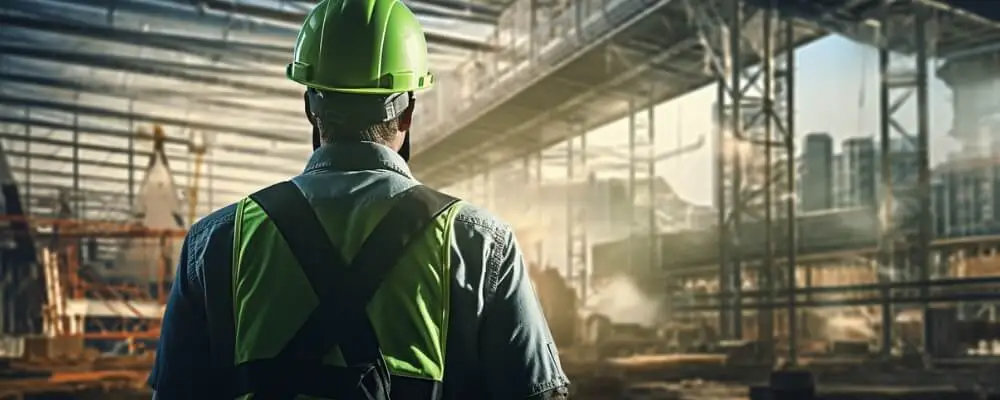
7. Workplace Safety Compliance and Policy Development
A Safety Officer establishes and maintains a safe, health-regulated workspace. Their responsibilities include active participation in planning sessions, during which they identify potential health and safety issues tied to the organization’s daily operations.
Working in collaboration with the management team, the Safety Officer aids in crafting and executing comprehensive health and safety policies and protocols, ensuring that the workplace meets and exceeds health and safety standards.
8. Review and Hazard Mitigation in Incident Action Plan
The safety officer reviews the Incident Action Plan to assess its safety implications. This crucial responsibility involves thoroughly examining the plan to identify potential hazards and determining the necessary measures to mitigate those risks.
By actively reviewing and analyzing the Incident Action Plan, the safety officer ensures that all safety considerations are accounted for, leading to a more comprehensive and effective response to incidents or emergencies.
9. Accident Investigation and Prevention
Investigation of accidents within their assigned incident areas is a vital responsibility of the Safety Officer. This process involves thoroughly examining the incident by interviewing witnesses, reviewing available security footage, and gathering other relevant evidence. The primary objective is to determine the cause and circumstances of the accident, with the ultimate goal of preventing similar incidents from occurring in the future.
When an accident occurs, immediate attention is given to ensuring the safety and well-being of all involved parties, followed by securing the scene for investigation. The Safety Officer then proceeds with their inquiry, gathering information and evidence to reconstruct the events and identify areas for improvement.
10. Site Safety and Health Plan Preparation and Coordination
The Safety Officer is responsible for overseeing the development and execution of the Site Safety and Health Plan (SSHP). This entails ensuring that the plan is adequately prepared, taking into account all necessary safety measures and protocols.
Additionally, the Safety Officer coordinates various site safety and health activities, including conducting regular inspections to identify potential hazards, conducting thorough accident investigations, providing comprehensive safety training, and implementing measures to mitigate identified hazards. Through their efforts, the Safety Officer plays a pivotal role in promoting a safe and healthy work environment.
11. To Maintain A Hazard-free Environment
The Safety Officer ensures that the site maintains a hazard-free environment. This responsibility encompasses conducting thorough inspections of the premises to identify potential hazards that could jeopardize the safety of individuals.
This includes diligently examining the site for risks such as trip hazards or faulty electrical wiring that may pose a risk of electric shock. The Safety Officer creates a safe working environment for all personnel by proactively identifying and addressing these potential hazards.
12. To Conduct Toolbox Meetings
The Safety Officer is responsible for conducting toolbox meetings, crucial platforms for disseminating up-to-date safety procedures and protocols to all employees. These meetings serve a dual purpose: they ensure that all staff members are well-informed about the latest safety measures and provide an opportunity for the Safety Officer to identify potential workplace hazards and collaborate with the team in developing effective plans to mitigate these risks.
By actively engaging employees in toolbox meetings, the Safety Officer fosters a culture of safety awareness and continuous improvement within the organization.
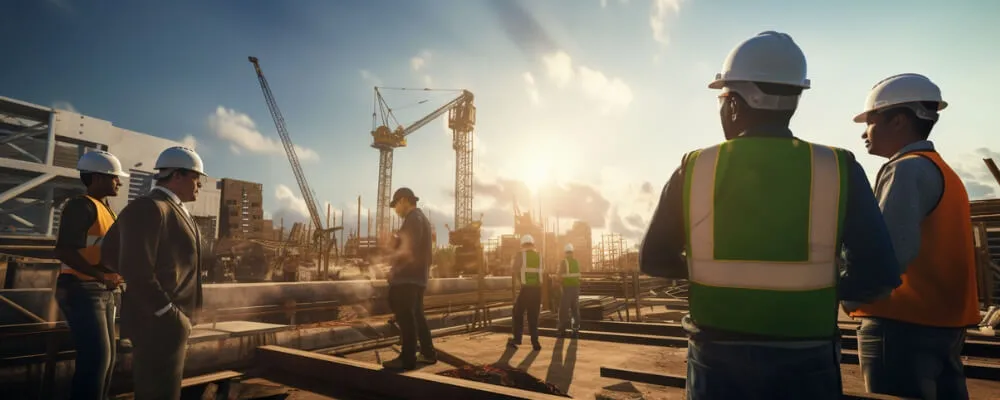
13. Efforts To Enhance Safety On The Project
The safety officer takes a leadership role in all initiatives to enhance safety on the project. They are responsible for developing and implementing comprehensive safety policies and procedures that align with industry best practices and regulatory requirements.
Additionally, the safety officer conducts regular training sessions to ensure all project personnel are well-versed in safety protocols and practices.
14. Review and Approval of Subcontractor Safety Plans
The safety officer is responsible for reviewing and approving all subcontractor’s safety plans. This crucial step ensures that subcontractors are fully aware of the potential hazards on the job site and have taken appropriate measures to protect their workers.
By carefully reviewing these safety plans, the safety officer assesses the subcontractors’ understanding of the job site risks and their ability to implement effective safety measures. This process helps to maintain safety compliance across all subcontractors, creating a safer work environment for everyone involved in the project.
15. Verification and Submission of Injury Logs and Reports
The safety officer is responsible for verifying and ensuring the completion and submission of injury logs and reports to the relevant government agencies. This crucial task ensures that accurate and comprehensive information regarding the number and types of injuries that have occurred in the workplace is provided to the concerned agency.
By fulfilling this responsibility, the safety officer assists government agencies in clearly understanding the safety landscape and can take appropriate actions to improve safety measures and prevent future incidents. This process promotes workplace safety compliance and fosters a proactive approach to maintaining a safe working environment.
16. Ensuring Adequate and Safe Tools and Equipment
The safety officer assumes the crucial responsibility of ensuring that all tools and equipment used in the workplace are adequate and safe for use. This involves regular checks to verify that the equipment is properly maintained and in good working order. The safety officer also ensures employees adhere to established safety procedures when using tools and equipment.
By taking these measures, the safety officer plays a vital role in promoting a safe working environment, reducing the risk of accidents or injuries caused by faulty equipment or improper usage.
17. Promotion and Enforcement of Workplace Safety Practices
A safety officer is crucial in promoting and enforcing safe practices at the job site. Their primary responsibility entails ensuring that all individuals working on the site diligently follow the established rules and regulations set by their company and any additional requirements imposed by local or state laws. This involves actively monitoring the work environment, identifying potential hazards, and taking necessary actions to mitigate risks.
By emphasizing the importance of compliance, the safety officer plays a pivotal role in cultivating a safety culture, minimizing the likelihood of accidents or injuries, and fostering a secure and healthy work environment.
18. Safety Guidelines Enforcement and Emergency Preparedness
The safety officer enforces safety guidelines and policies and ensures employee compliance. They possess in-depth knowledge of procedures, protocols, and the company’s emergency response plan. Through regular inspections and corrective actions, they promote a culture of safety awareness.
Additionally, the safety officer plays a vital role in emergency preparedness, ensuring employees are well-prepared and the emergency response plan is accessible and understood by all. The safety officer maintains a safe work environment and facilitates effective responses during emergencies with their expertise.
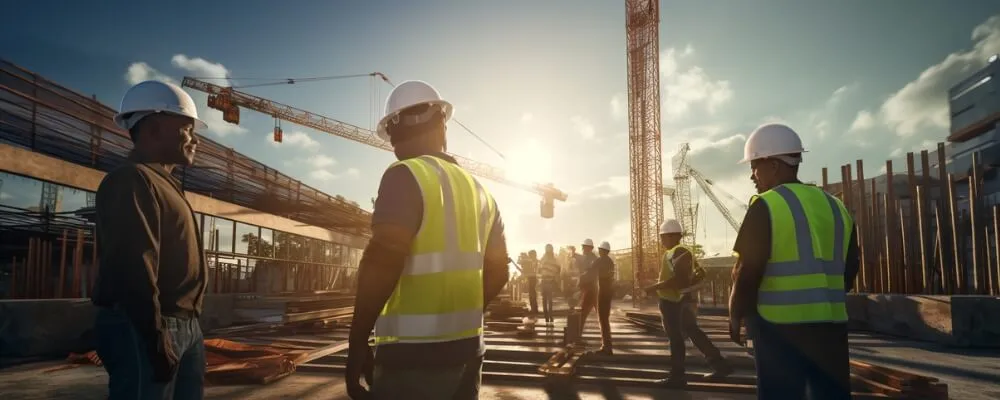
19. Emergency Preparedness and Communication
The safety officer is responsible for ensuring that all employees are well-informed about their duties in an emergency. This includes providing clear guidelines and instructions on responding effectively and safely during such situations. Additionally, the safety officer is responsible for promptly informing management of any company policy or procedure changes that could impact employees’ ability to perform their jobs appropriately during emergencies.
By prioritizing emergency preparedness and facilitating effective communication, the safety officer plays a vital role in safeguarding the well-being of employees and ensuring a coordinated response to emergencies.
20. Monitoring and Compliance of Permit to Work (PTW) Systems
The safety officer is responsible for monitoring the activities of the permit-to-work (PTW) system, ensuring its compliance with applicable laws, regulations, and standards. They diligently verify that the PTW meets all safety requirements set by the employer and promptly address any safety violations.
By closely monitoring the PTW system, the safety officer plays a crucial role in maintaining a safe work environment, reducing the risk of accidents, and ensuring that all work activities are conducted in accordance with established safety protocols.
21. Safety Regulation Compliance and Hazard Management
The safety officer oversees compliance with all safety regulations and promptly addresses potential hazards. They ensure that all applicable safety protocols and guidelines are followed, fostering a safe working environment.
Additionally, the safety officer proactively identifies potential hazards, taking swift and effective action to mitigate risks and prevent accidents. By diligently managing safety regulations and promptly addressing hazards, the safety officer plays a pivotal role in protecting the well-being of employees and maintaining a secure workplace.
22. Job Hazard Analysis: Identifying and Assessing Workplace Risks
The safety officer is responsible for conducting a job hazard analysis, which involves systematically identifying potential dangers within the workplace and assessing the associated risks. This analysis aims to determine the level of danger involved in a specific task before an employee begins it and the extent of control the employee has over their actions.
By conducting a thorough job hazard analysis, the safety officer can effectively identify and prioritize hazards, implement necessary control measures, and ensure that employees have the knowledge and resources to mitigate risks, promoting a safer work environment.
23. Establishing Safety Standards, Policies, and Training
The safety officer is responsible for establishing and implementing safety standards and policies as necessary. This includes ensuring all employees are well-informed about the workplace environment and its associated hazards. The safety officer plays a vital role in providing comprehensive training to employees, equipping them with the knowledge and skills needed to effectively respond to workplace hazards.
By establishing safety standards and policies and delivering thorough training, the safety officer creates a safety-conscious workplace culture and reduces the risk of accidents or injuries.
24. Worker Safety and Hazard Prevention
The safety officer is responsible for safeguarding the well-being of all workers on site. They diligently ensure the absence of hazardous conditions, monitoring the work environment to identify potential risks and taking necessary action, including issuing orders if required, to mitigate hazards and maintain a safe workplace.
Additionally, the safety officer works proactively to protect employees from entering hazardous situations, emphasizing the importance of adhering to safety protocols and promoting a culture of vigilance and risk prevention. Through their efforts, the safety officer plays a vital role in ensuring the safety and welfare of all workers on site.

25. Addressing Employee Safety Concerns and Ensuring Workplace Safety
The safety officer is crucial in responding to and addressing employees’ safety concerns and issues. Their primary objective is to ensure a safe working environment for all employees. The safety officer actively listens to employees, investigates their safety concerns, and takes necessary actions to resolve them.
They work diligently to identify and address potential hazards, implementing appropriate safety measures to mitigate risks. By prioritizing resolving employee safety concerns and ensuring workplace safety, the safety officer promotes a safety culture, instilling confidence among workers and maintaining a secure work environment.
26. Coordination of Hazardous Waste Management
The safety officer is responsible for coordinating the registration and removal of hazardous waste. This encompasses tasks such as keeping track of hazardous waste disposal sites, ensuring compliance with proper disposal procedures, and completing all required paperwork.
The safety officer ensures that hazardous waste is managed in accordance with relevant regulations and guidelines, minimizing potential risks to both the environment and personnel. The safety officer is crucial in promoting environmental sustainability and maintaining a safe workplace by effectively coordinating hazardous waste management.
27. Ensuring Safety Compliance in State and Local Agencies
Safety officers have a crucial responsibility in safeguarding the well-being of state and local agencies by ensuring strict adherence to safety regulations. They coordinate and communicate effectively with agencies and contractors to guarantee that all required safety protocols are followed. This includes implementing and monitoring safety measures, conducting regular inspections, and providing necessary guidance and training to personnel.
By promoting and enforcing safety compliance, safety officers create a secure work environment within state and local agencies, minimizing the risk of accidents and prioritizing the welfare of all individuals involved.
28. Department of Labor Reporting and Response
The safety officer is responsible for receiving and responding to the Department of Labor orders. This involves promptly reviewing and addressing any reports or directives received from the department. The safety officer ensures that necessary actions are taken to comply with the orders, including conducting investigations, implementing corrective measures, and providing relevant documentation or information as required.
By effectively managing the reporting and response process, the safety officer plays a vital role in maintaining regulatory compliance and fostering a safe working environment in accordance with the Department of Labor’s guidelines and requirements.
29. Ensuring Workplace Safety and OSHA Compliance
The safety officer is responsible for ensuring that the workplace maintains a high safety standard and compliance with OSHA regulations. This involves arranging for necessary testing and workplace evaluations by external agencies or consultants, as mandated by OSHA requirements. The safety officer proactively identifies potential hazards, implements preventive measures, and facilitates regular assessments to ensure adherence to OSHA guidelines.
By actively working to maintain a safe and compliant workplace, the safety officer plays a critical role in safeguarding the well-being of employees and mitigating risks associated with workplace hazards.
30. Identifying and Reporting Weaknesses in Safe Work Procedures
The safety officer’s primary responsibility is to identify any weaknesses in the safe system of work procedures and promptly report them. These weaknesses can be identified through health and safety risk assessments or observations. It is crucial that the safety officer maintains the confidentiality of their findings unless there is a legal requirement to disclose the information.
By effectively identifying and reporting these weaknesses, the safety officer improves work procedures’ overall safety and effectiveness, ensuring a secure work environment for all employees.
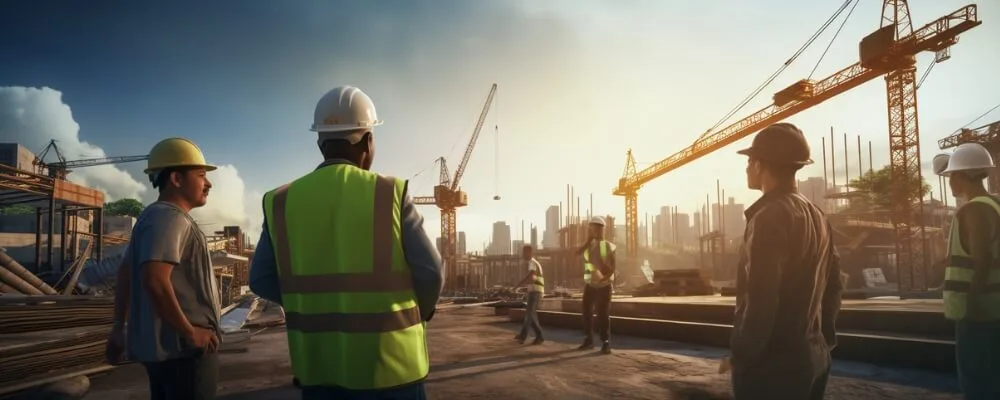
Additional Duties Of A Safety Officer
- The safety officer is responsible for ensuring the safety of all employees in the workplace. They advise and instruct on various safety-related topics, such as noise levels, use of machinery, and so on. The safety officer must be familiar with all aspects of the job and any potential hazards that could occur.
- To conduct risk assessments and enforce preventative measures. A safety officer must always be vigilant and take action whenever they see a potential hazard.
- The safety officer is responsible for developing and implementing safety policies and procedures, conducting safety audits and investigations, and providing training on safety topics.
- As your organization’s safety officer, you must ensure all employees and executives receive proper OHS training. This includes ensuring that they know the potential hazards in their work environment and how to protect themselves from them.
- The safety officer is responsible for inspecting premises and the work of personnel to identify any issues or non-conformity (e.g., not using protective equipment).
- The safety officer oversees substances’ installation, maintenance, and disposal. They are also responsible for ensuring that all safety protocols are followed and that all safety equipment is in working order.
- Ensure all employees follow safety protocols and stop unsafe acts or processes. This includes maintaining a safe work environment and ensuring all employees are properly trained in safety procedures. If you see anything that seems dangerous or unhealthy, you must act and ensure the situation is remedied.
- The duties of a safety officer include maintaining clean and legible health and safety signs and notice boards in their assigned area. This is important to ensure everyone knows the risks and how to stay safe.
- As a safety officer, you must report any employee health problems that you become aware of to the Departmental Manager. This ensures that the problem can be investigated and, if necessary, corrective action can be taken to improve the health and safety of the affected employees.
- The safety officer is responsible for ensuring that employees and visitors are safe while they work at the company. They have to organize their workload in such a way so there’s no harm coming from it, either during activity or after completion, when things may still go wrong due to accidents happening on the on-the-job site without warning!
Conclusion
The duties of a safety officer encompass a wide spectrum of responsibilities crucial for maintaining a safe and healthy work environment. From ensuring compliance with safety regulations to conducting risk assessments and coordinating emergency responses, safety officers play a pivotal role in safeguarding employees and mitigating risks. Through their expertise and dedication, they establish and enforce safety protocols, train employees, investigate incidents, and foster a safety culture within organizations.
The 40 duties outlined in this blog post serve as a comprehensive guide, highlighting safety officers’ diverse responsibilities. By being aware of these duties, safety professionals can further enhance their skills, and organizations can prioritize the well-being of their workforce. Together, we can create workplaces prioritizing safety, where employees can thrive and organizations can confidently achieve their goals. Let’s embrace the critical role of safety officers and work towards a safer future for all.

